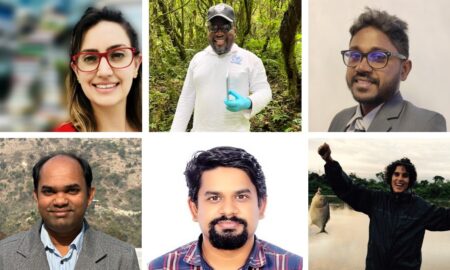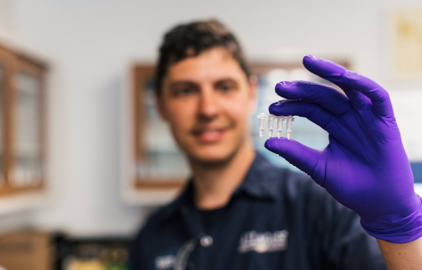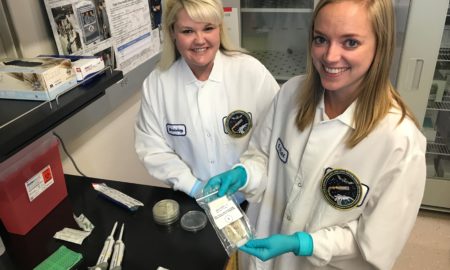Meet a scientist: Will Padilla-Brown is a self-taught molecular mycologist
Have you ever wondered about the mushrooms you see growing in the wild? Mycology is the study of fungi, which includes mushrooms. Mushrooms play essential ecological roles and have many useful applications for humans, from food to medicine.

There are lots of ways to learn more about mushrooms. Will Padilla-Brown shares his mycology journey in this interview.
Will is the founder of MycoSymbiotics. He runs a mushroom farm and research lab in Pennsylvania focused on cultivating edible and medicinal mushrooms.
This interview has been edited for length and clarity.
How did you become interested in mycology?
In my late teens and early twenties, I became interested in where my food was coming from. I really wanted to know what I was putting into my body, so I started a little garden at my house. Mushrooms started popping up, and I was really curious about them. This was also around the time that I started to go on hikes in the forest, and on those hikes, I started to see mushrooms as well.
Do you have a favorite mushroom?
I’m particularly interested in Cordyceps mushrooms. Cordyceps militaris have been important in my business. They are abundant here in Pennsylvania in the summer. Cordyceps militaris are an entomopathogenic fungi, which means they grow on insects. We find them growing on moth pupae here. There will be a little orange mushroom sticking out of the ground and when we dig them up you can see it’s attached to a moth pupa. There is a lot of research on the medicinal benefits of Cordyceps militaris mushrooms, and every year we find out more.

Can you explain how you have incorporated molecular biology techniques into your passion for mycology?
Most people use DNA barcoding for mycology. This is where you read the sequence of a short region of DNA and use it to identify the species of mushroom.

I use a mini16 thermal cycler and the minION sequencer to do this. I also use DNA technology to identify mating types of fungi for breeding projects on my farm. I am really excited to see how other people apply DNA technology to mycology in the future.
Do you have suggestions for people who are interested in learning more about fungi?
Mushroom clubs are one of the best places to start. Mushroom clubs host forays where they take people into the forest, look for mushrooms, and try to identify them. The parent organization is called the North American Mycological Association, and their website will help you find the closest regional mushroom club to you.
Do you have suggestions for people who are interested in getting more involved in citizen science?
I recommend looking to see if you can find a community lab near you. That’s a great place to start because it puts you in a community where you can talk with other people about what you’re interested in. It’s really helpful to get guidance because when you’re really excited about something scientific, but don’t have experience with the scientific method or the tools of the trade, it can be overwhelming to figure out how to carry out the kind of citizen science project that you are interested in.
Want to know more?










